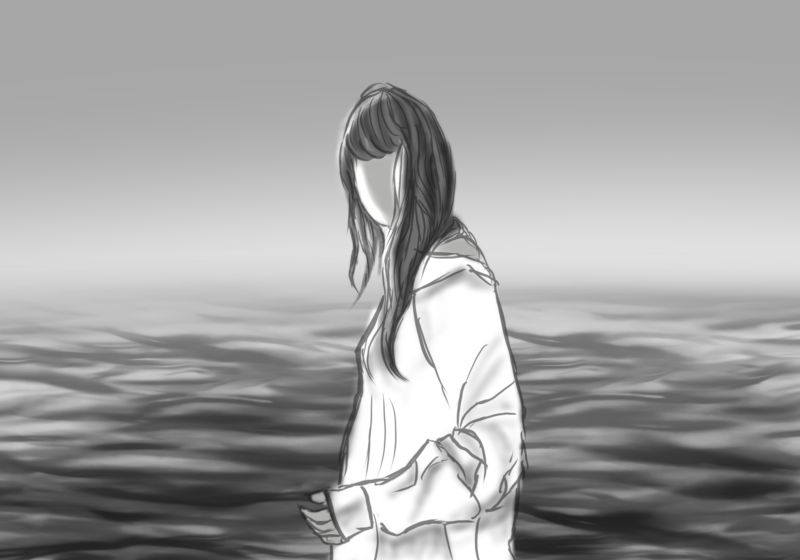Economics Professor Michael Rizzo has been at UR for two years. The avid hiker teaches Environmental Economics, Money, Credit and Banking, Intermediate Economics and Principles of Economics.
How did you end up getting hired as a professor at UR?
So I have this blog that I used to keep my thoughts organized. One day, I was sitting in my old job, which I absolutely hated. I have an ‘About Me” section on my blog, and you can comment anywhere on it.
In August of 2007 I get a message from Mark Bills [that read]: ‘Dear Michael Rizzo, I am in economics at the Univ. of Rochester. I am hoping to talk to you about a teaching opportunity we may be creating here, but can’t find your e-mail address. If you could e-mail me at the address above, that would be terrific.”
At first I thought someone was teasing me, so I didn’t respond to it. It was probably a month or two later that somehow he got my phone number from some other colleague. He called me up and said, ‘Yeah, I wasn’t kidding!” This was great, because all I wanted was a teaching position.
What inspired you to pursue a career as a professor?
There are lots of reasons. To be an economist, you should be honest, right? It’s a wonderful life. I took [about] a million dollar pay cut to come here, so is it for the pay?
The lifestyle is great. I’d rather talk to you any day of the week than do what I was doing. Career flexibility in addition to my life we have kids and once I had them I wanted to spend more of my time with them. So this lets me do that.
The other thing I like is that it’s not that I wanted to become a professor, I wanted to become an economist and one of the best professions as an economist is being in academia. I think it keeps more doors open for me throughout the rest of my life.
Where and what do you see yourself doing in 10 years?
I feel like I need to be a much better teacher and there are ways to do it. There are things I could do to make myself a better teacher.
I spend a lot of time blogging I don’t know if it’s useful, to the extent that it ends up being a book. Parts of it have inspired me to do a lot of things that I would like to sit down and do. The other part is that I struggle to keep my classes out the door and done. I keep reading, and I meet with my students all the time. I love doing that, but it’s at the sacrifice of my classes. So in 10 years, I want to cut out some of the things that make my classes not as good.
Other than that I would like to open up an entrepreneurial healthcare business along with my wife where you just change the model entirely. You do something that people are not doing whatsoever. You totally ignore the insurance companies, the government, the whole deal and you just do it. I haven’t tried being an entrepreneur.
What is your favorite pasttime?
I like hiking. If I had to give up all my other past-times and I could just pick one, it would be hiking. It’s beautiful I don’t do it for the exercise but it’s wonderful exercise. You hike in places all over the world and you get to spots that human beings don’t go to, and it’s just relaxing.
What’s the best hiking trail you’ve ever been on?
My two favorite hikes ever are on a place called the Hundred Mile Wilderness in Maine, which is the last hundred miles of the Appalachian Trail. I did that as a treat for myself before I started grad school.
My other favorite hike was in Bryce Canyon in Utah. Our graduation present [three of my best friends and I] from my parents after we graduated college was helping us get a car to go cross-country. We spent four to five weeks in a station wagon visiting all the parks out west together. And we hiked the Grand Canyon to the bottom, we hiked Bryce Canyon and Zion, we hiked them all, but my favorite was Bryce. It was like walking on the moon. Bryce Canyon has these weird carvings from the wind and from the water. It was really cool.
What is one class that isn’t offered at UR that you would love to teach in the future?
I can give you several. I think a course on the Great Depression, taught from an economic and historical standpoint, would be eminently useful because look at how much of the myth is driving our policy choices and public debate today. I’d love to see a course on public choice economics that deal with the misaligned incentives of the government. Another one, behavioral economics … would be a formal course on this blend between economics, psychology and a blend of the other social sciences. A more holistic-type course [like that] would be wonderful.
If you could give a short description about the current state of the economy, what would it be?This element of uncertainty, which was important during the Great Depression, is important now. There’s so much uncertainty about the tax and policy in the institutional environment that [people and institutions] are frozen. A good analogy would be: I feel like I’m Charlie Brown waiting to kick that football, and I have no idea if Lucy is going to keep it down on me or not.
Radovani is a member of
the class of 2012.





